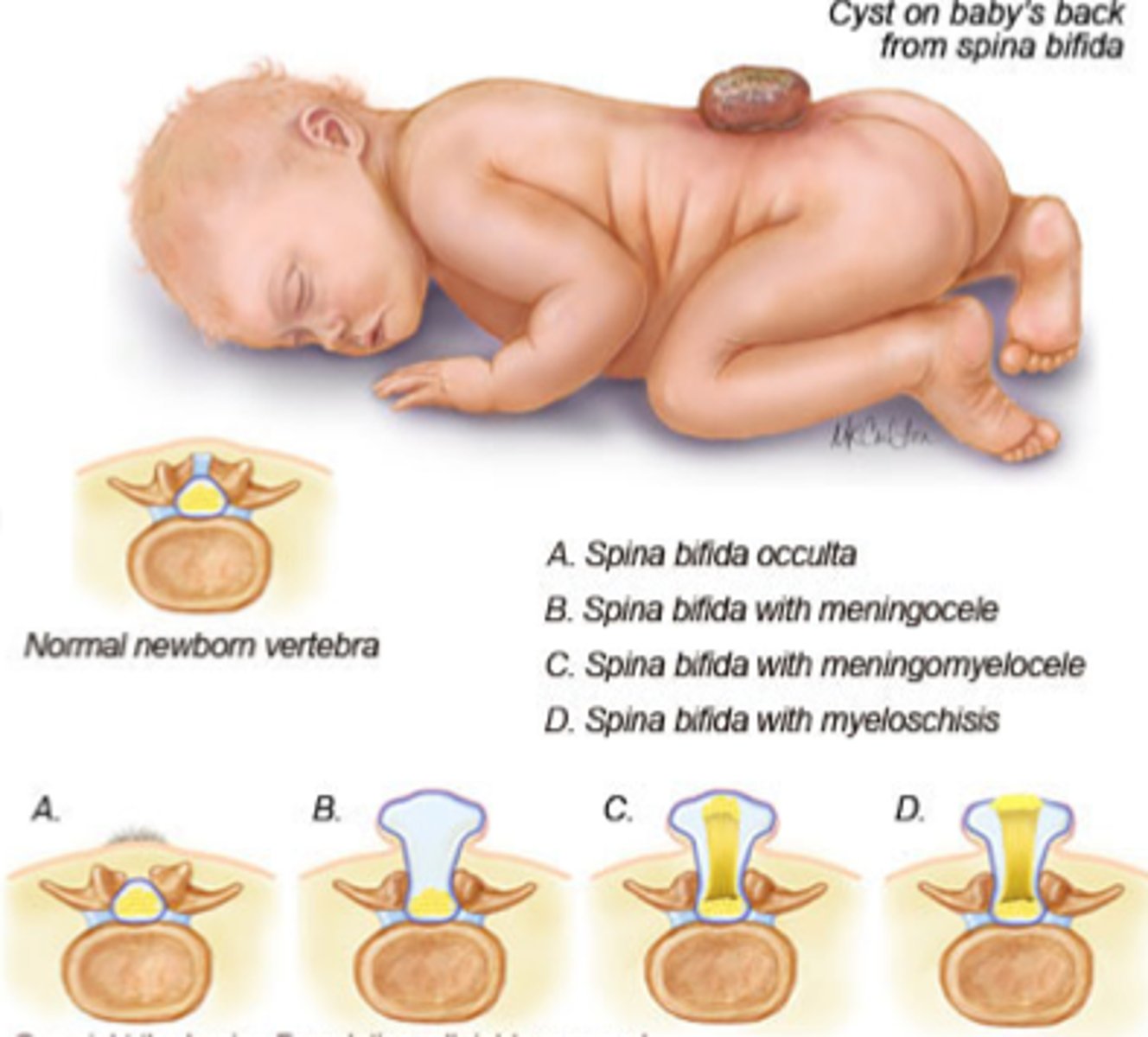07.3F U7P2 (PART F) Developmental Aspects of the Nervous System
1/4
There's no tags or description
Looks like no tags are added yet.
Name | Mastery | Learn | Test | Matching | Spaced |
|---|
No study sessions yet.
5 Terms
Anencephaly
-Cerebrum fails to develop
-Child can not hear, see, or process sensory inputs
- absence of a major portion of the brain, skull, and scalp that occurs during embryonic development. It is a cephalic disorder that results from a neural tube defect that occurs when the rostral (head) end of the neural tube fails to close, usually between the 23rd and 26th day following conception.
Spina Bifida
-Affects 1 out of 1000 newborns
-Vertebrae form incompletely
-Sometimes protrusions are evident
-Paralysis and loss of feelings in limbs, bowels and bladder can result
-Treated surgically

Senility
- decline associated with old age
- as one becomes older, mind begins to deteriorate, dementia or senile
Degenerative Disorders
-Alzheimer's disease, amyotrophic lateral sclerosis (ALS), Huntington's disease, and Parkinson's disease, among others — affect more than 45 million people worldwide. These diseases often strike older adults and are characterized by progressive deterioration of nerve cells, eventually leading to cell death.
Age affect on the brain
-Ageing causes changes to the brain size, vasculature, and cognition. The brain shrinks with increasing age and there are changes at all levels from molecules to morphology. Incidence of stroke, white matter lesions, and dementia also rise with age, as does level of memory impairment and there are changes in levels of neurotransmitters and hormones.